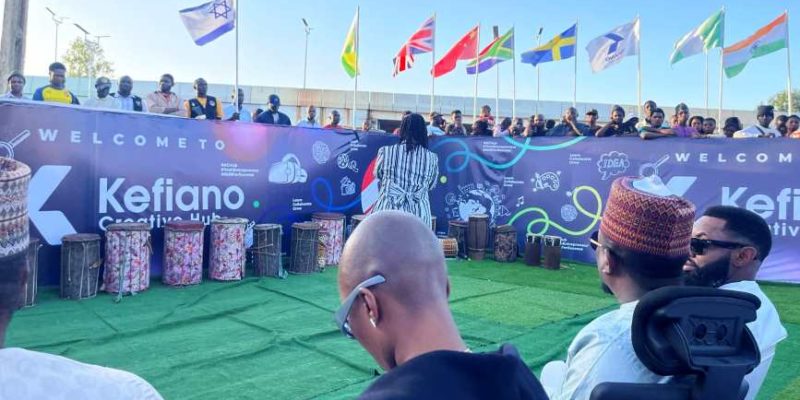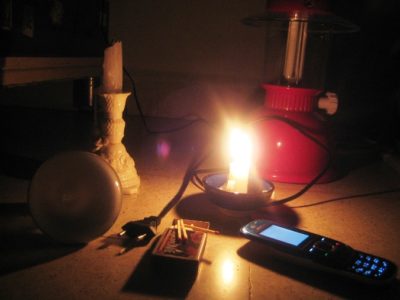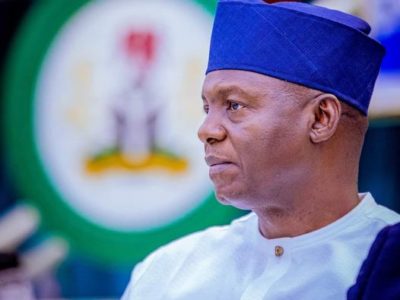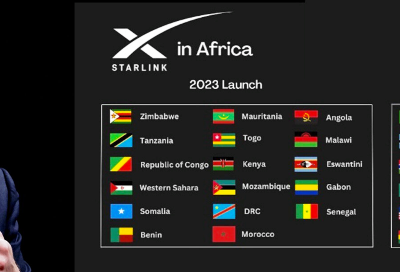Matters eRising with Olusegun Oruame
Jos City, Plateau State is getting reworked with the launch of Kefianos Creative Hub (KC Hub). Inspired by High Chief Kefas Wungak Ropshik, politician, philanthropist and entrepreneur, the KC Hub plugs into the overwhelming theme of fostering innovation and creativity among young people on the Plateau where decades of ethno-religious crises have ruined lives, relationships and businesses.
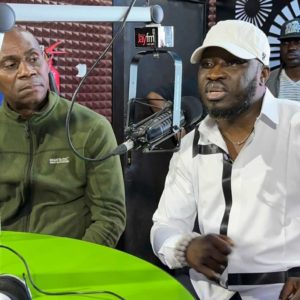
Ropshik with author
Ropshik thinks Jos and the entire Plateau State and by extension Nigeria, could be remodeled on a peace with prosperity trail by seeking for a pathway that allows youths to leverage new opportunities in the creative economy.
RELATED: Nicademia launches Nigeria’s first hub for ‘creatives’
The gambit for KC Hub is hinged on pushing investment in a creative economy where “value is based on imaginative qualities rather than the traditional resources of land, labour and capital.”
An ambitious strategy for Jos, once famous for being a melting pot of diverse cultures and peoples. Jos was where rocky mountains, freezing cold weather, lushful green landscapes joined talents embroiled in the eternal creative struggles of arts, music and dance that gave the city its unique delightful identity of a centre of creativity.
Jos was once home to some of the big names in the music industry and those that made their mark in the film industry. Jos is where you associate with the artistic dawn of the likes of Tu Face, PSquare, M1, Ice Prince, Saint Obi (late Nollywood star) and before them, the entire cast that made Cock Crow At Dawn a must watch in the 80’s. Any wonder why the NTA TV College and Nigeria Film Institute found a home in Jos?
That credential has long been stained since the first violent upheavals of 2001 and several other bloody conflicts after that. But the rocky mountains, good cold weather, lustful greenery are still there and the raw talents waiting for opportunities to knock.
Inspiration from history
Ropshik is taking inspiration from Jos’ past to refocus the city on its historical advantages in the creative, or if you like, cultural industries with the launch of KC Hub through which he is also driving a state-wide initiative to take creativity, innovation and technology training to every local government in Plateau State and train 100 youths per local government beginning January 2024. By the end of the first phase, about 1,700 youths across Plateau State would have been kitted to be active players in the digital and creative economies.
For Jos, Plateau, here’s the deal. KC Hub wants to provide a vista into the creative economy where “people get money by capitalizing on their ideas and creative talent”, and “talent is the blood that fuels creative economy”.
“We’re going to travel to every LGA in our beautiful state with experts in various technological disciplines to teach young creatives technological skills that will equip them for the next generation,” said Ropshik.
If KC Hub succeeds, it will be a resounding win for Nigeria’s larger economy.
According to Forbes, “as at today, the creative economy is estimated to be worth $985 billion with no signs of slowing down. G20 Insights predicts that the creative economy could account for 10% of global GDP by 2030, and Deloitte believes we will see up to 40% growth in creative sectors by 2030.”
The figures cannot be ignored. The opportunities offered are tremendous. Yet, “Africa’s share of the global creative economy remains significantly low, accounting for only around 2.9% of global creative goods exports, representing $58.4 billion and less than 1% of the African GDP” as at April 2023, to go by report of the UNDP on Accelerating Creativity and Innovation in Africa.
Nigeria – a mix of negatives and hopes
Nigeria’s narrative is a mix of negatives and hopes. Mustard Insights projects that Nigeria’s creative industry will generate $15 billion by 2025 with its significant human potential and a large population of talented youths. A more liberal figure is $100 billion annually by 2030 on the condition that government creates an enabling business environment to ginger private sector participation and get more KC Hubs birthed across the country.
The creative industry lacks sufficient policy, funding and infrastructural support while talent pool is limitless. However, the creative sector continues to thrive “driven by young and talented individuals. From film to music and fashion, the country’s creative sector holds significant global influence and has the potential to become a prominent exporter of Nigerian culture.
In spite of inherent challenges, the creative sector is a hefty contributor to Nigeria’s GDP and employs millions of people. “The film and music sectors alone, just aspects of creative industry, raked in a whopping sum of $104 million into the country`s economy in 2019 and has recorded a steady upward swing as Statista has revealed.
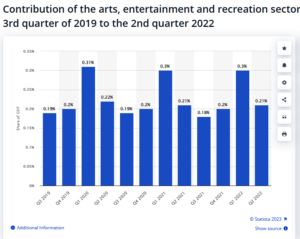
Contribution of the arts, entertainment and recreation sector to GDP in Nigeria from Q3 2019 to Q2 2022. Statista
As at September 2023, motion picture and music recording accounted for N154 billion (roughly 197.6 million U.S. dollars) of Nigeria’s GDP in 2023.27 Sept 2023, according to Statista.
Creative economy takes centre stage
The creative economy is taking the centre stage and developing countries such as Nigeria could leverage it as their pathway to not just economic recovery but sustainable growth, says the United Nations Conference on Trade and Development (UNCTAD).
Projected to account for 10% of global GDP by 2030, percent, the UN estimates that creative economy industries annually generate revenues in excess of $2 trillion and account for nearly 50 million jobs worldwide.
Countries like Nigeria cannot afford to miss out of these opportunities to underscore the significance of hubs like the KC Hub. With a robust policy, infrastructure and funding, Africa’s most populous country of over 220 million people can rely on its “creative economy to produce jobs and growth, stimulate innovation, fuel tourism, and promote culture.”
In 2017, the Federal Government announced granting ‘Pioneer Status’ to Nigerian creative industry allowing operators in the sector to enjoy some level of holiday as per “corporate income tax and withholding tax on dividend from pioneer profits for an initial period of three years, extendable for one or two additional years.”
Has this policy been sufficiently implemented to gain any level of traction? Most field practitioners do not think so. “The ‘Pioneer Status’ covers music production, publishing and distribution (including online digital distribution); photography; production and post-production of digital content for motion pictures, videos, television programmes, commercials, distribution and exhibition (digital movies, animation, videos, TV programmes and commercials); publishing of books (copyrighted books) and development and publishing of ready-made software (operating systems, software applications and computer games).”
But at best, government’s handling of the creative economy has been tardy though the new Tinubu administration appears keen to alter things for good as it specifically created a Ministry for Art, Culture and Creative Economy headed by Hannatu Musawa, an amiable personality.
Musawa has outlined an eight- point agenda for the contribution of creative economy to the growth of the national economy and announced plans to establish a Creative Economy Advisory Council to provide high-level strategic support for the growth of Nigeria’s economy. The game-plan is to use the creative economy to raise Nigeria’s revenue maximally as UNCTAD has repeatedly shown that while developing economies lag behind in export of creative goods, they have a higher chances of growing that sector than the developed ones.
One UNCTAD report shows that in 2020, China was by far the largest exporter of creative goods ($169 billion), followed by the United States ($32 billion), Italy ($27 billion), Germany ($26 billion) and Hong Kong (China) ($24 billion).
Boom is the word
The 2021 Creative Sector Report by Jobberman offers further clarity on Nigeria’s burgeoning creative sector which “has made a name for itself globally, particularly in music, film, and fashion.”
The report notes: “the music industry, in particular, has witnessed significant revenue growth, with projected revenues reaching US$73 million in 2021, compared to US$39 million in 2016, signifying a 13.4% compound annual growth rate (CAGR). Notable Nigerian artists such as Femi Kuti, Yemi Alade, Asa, Davido, Wizkid, and Burna Boy have achieved international recognition and awards, further bolstering the country’s music industry.
“Nollywood, Nigeria’s film industry, is the second-largest producer of movies in the world, producing approximately 50 movies per week and generating around $600 million annually. The industry has embraced technological platforms like Iroko TV, Netflix, and cinemas to enhance the distribution of its movies. Women directors such as Funke Akindele and Kemi Adetiba have significantly contributed to the industry’s success.
“The fashion market in Nigeria is also gaining momentum, accounting for 15% ($4.7 billion) of the Sub-Saharan fashion market. Revenue from textiles, apparel, and footwear has experienced consistent growth, averaging 17% since 2010. The industry has significant growth potential with increasing global recognition and demand for Nigerian fashion.”
Where does this fit for KC Hub?
There is an increasing global attention on Nigeria’s creative sector for good reasons. Here is one illustrative fact. Nigeria artists currently lead the continent on Spotify and other streaming platforms. The continent’s top 10 has eight Nigerian artists. Ace performer, Davido’s 2023 album: ‘Timeless’ has featured over 10 million user-generated playlists on Spotify, the album had over 12 million streams in 24 hours, the first time an album would achieve such a feat” to underscore Nigeria’s creative economy as a major cultural export.
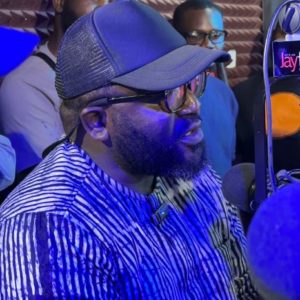
Oloruntoba
In the sector, boom is the mantra. Investors, fund managers including financial institutions (AfDB and Afrixeimbank, etc); and big techs like Google, Meta and Netflix are beginning to explore the opportunity to build talent and foster a space where artists, designers, technologists, and entrepreneurs can collaborate, exchange ideas, and experiment,
Therefore, Ropshik’s KC Hub must play to become not just a mere space for innovative projects and solutions. A creative hub offers more and in legions. Just like one observer at the launch said: “here’s a place for “cultural preservation and promotion.” Jos is culturally rich and diverse. The KC Hub should serve as a platform to celebrate and preserve the local cultural heritage through various art forms, performances, and exhibitions. It must promote cultural exchange, showcasing Jos and Plateau’s unique identity to a broader audience.
Do List for KC Hub
Here’s a Do List for the managers at KC Hub.
- Discover talents and build capacity to provide youths with tools and opportunities to pursue careers in creative industries.
- Be a vibrant tourism and cultural hub attracting tourists and visitors interested in art, culture, and innovation; also allowing for cultural exchange to encourage visitors in Jos to explore the region beyond its creative offerings.
- Be a centre for community engagement and social cohesion able to engage people from different backgrounds and fostering social cohesion; able to offer a space for dialogue, collaboration, and mutual understanding, bridging societal divides and promoting unity.
- Provide entrepreneurship and business development including to incubate startups and creative ventures by providing resources, mentorship, and networking opportunities in a way that is able to support the growth of small businesses and startups in Jos and environs.
- Be a rallying point for technological advancements and digital creativity; setting the agenda to embracing technology and exploration of digital art, gaming, animation, and other technological creative pursuits. KC Hub must strive to be the centre for both traditional and cutting-edge creative endeavours. How much of AI and other emerging technologies will find their way into traditional art forms are some of the posers the minders of KC Hub should be focusing on as they build people and communities.
- Like all impactful hubs, the KC Hub must spur urban revitalization in Jos; helping to influence policy makers and other stakeholders to advance digital infrastructure development; attracting further investment external support to ultimately enhance the overall livability of Jos city.
- Live to your theme-claim of collaboration and networking. The Kefiano Creative Hub must be at the centre of facilitating global connections; linking local talents with international artists, designers, and innovators to make Jos an active part of a global creative network, thus opening up opportunities for collaborations and exposure.
KC Hub and the challenges to be addressed
For KC Hub, the potential to transform the creative landscape of Jos, Plateau State and entire country is immense. Inviting dignitaries from everywhere including from Lagos, Abuja and Zimbabwe to be part of the opening ceremony significantly echoes its desire to build relationships across fixed boundaries.
The hub has to focus on market and funding, innovation and development and equally important, collaboration, said CEO, Nigeria Climate Innovation Center (NCIC) and Honorary Consul of Finland in Lagos, Bankole Oloruntoba
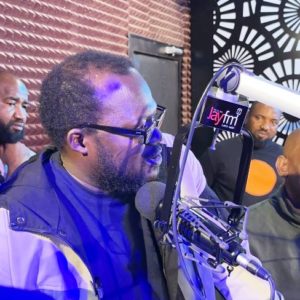
David
As Daser David, founder of NHub and former Director General of Plateau State Information and Communication Technology Development Agency (PICTDA) puts it: “Chief Kefas Ropshik has taken up the mantle of reviving communal engagement through the Kefiano Creative Hub. This hub is a testament to the vision of bringing Jos creatives together under one roof, providing the much-needed support for them to blossom into the admired creative capitalists of tomorrow.”
However, there are immediate challenges its handlers must address none the least getting the right digital connectivity infrastructure and a network of great ideas and people in place. Even more importantly is the right Team Lead(s) that must possess all the credentials of experienced, exposed managers to activate the aspiration of Ropshik to engineer a place to rework Jos, Plateau State and entire Nigeria to progress.
The folks in Jos have got work to do. It is a great work.
Oruame is founder at Khowhow Media, Qitech Technologies


